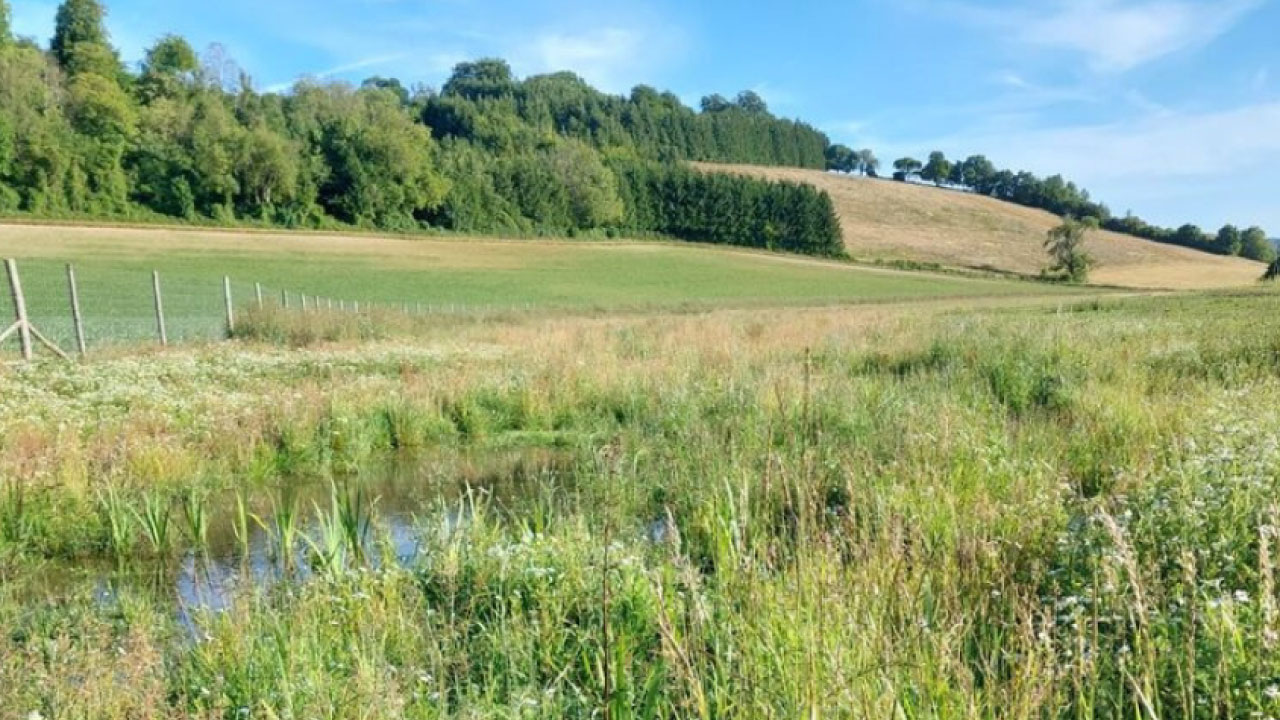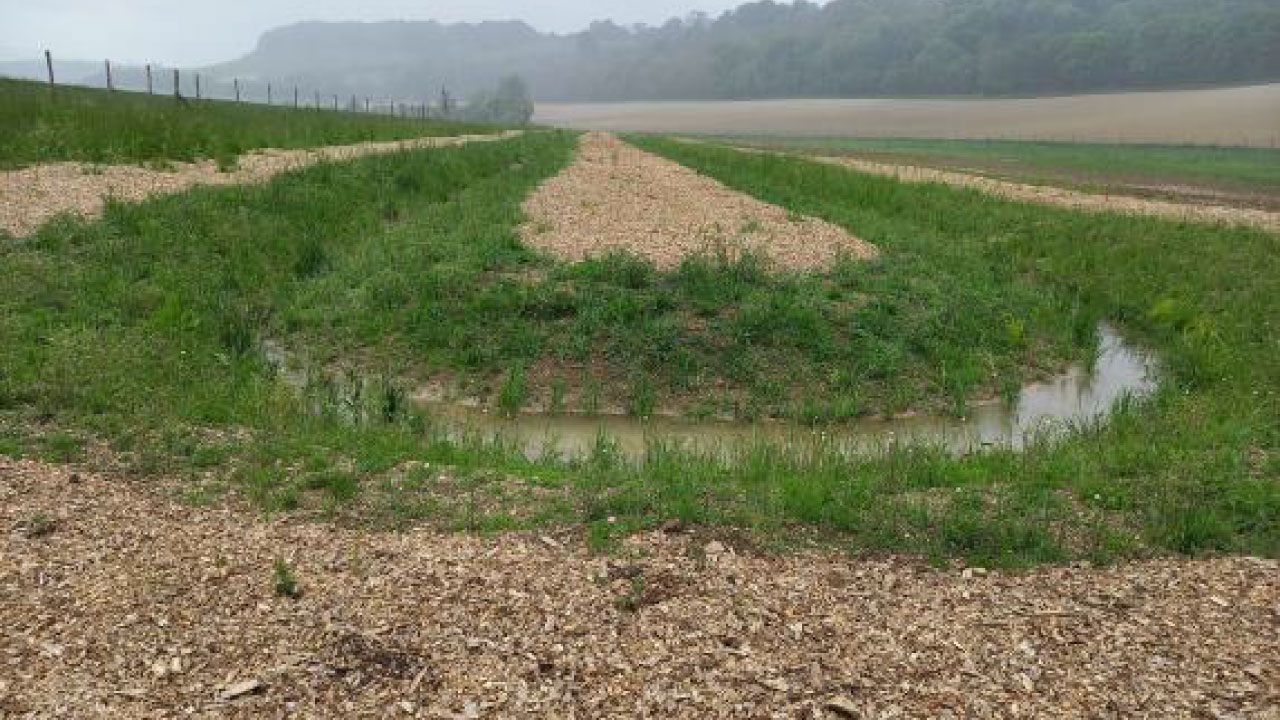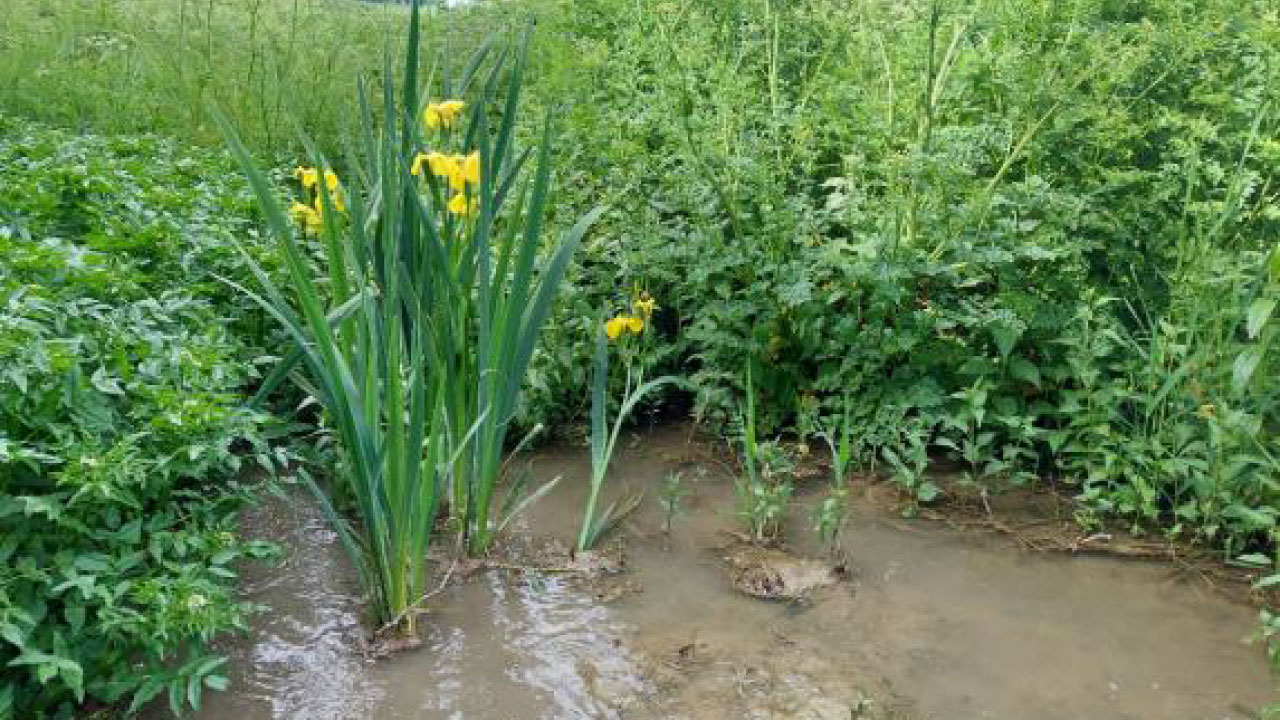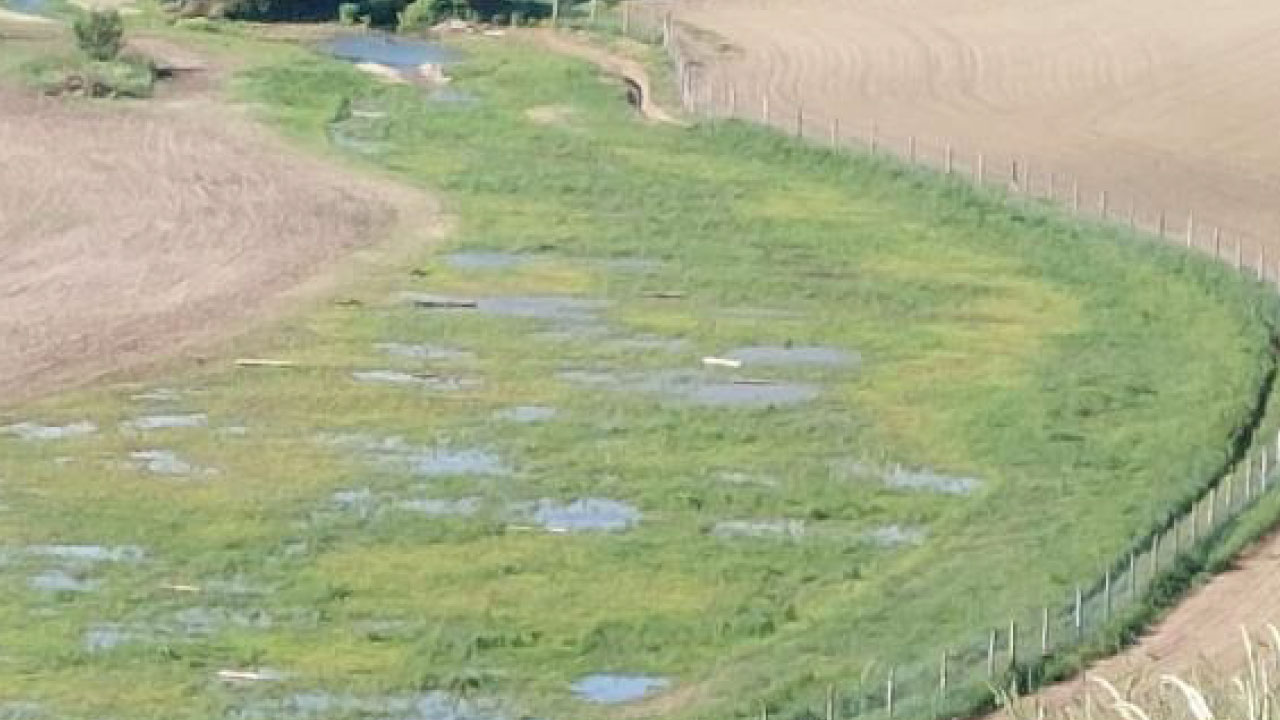
By creating a wetland and implementing regenerative farming practices, the project strives to meet government requirements, mitigate the impact of new residential developments, and contribute to the overall ecological health and sustainability of the area.
From an ecological perspective, the project primarily focuses on reducing “legacy nitrogen” by filtering out nitrogen present in Whitewool Stream, which have accumulated in the groundwater over many years. To improve the positive effects, the project looks at the entire Whitewool Valley, situated above an aquifer, by combining wetland development with regenerative farming practices and the implementation of regenerative drainage features. These efforts aim to significantly improve the water quality entering the main river in West Meon.
The project has gained planning permission for ecological enhancements at Whitewool Farm, located in East Meon, which will contribute to offsetting the problem of increasing nitrogen in the region, from sources such as wastewater and agriculture. The approved scheme involves creating wetland and reedbed habitats through landscaping, along with the establishment of wet woodland and hedgerows.





Results, Benefits and Innovation
By implementing these measures, the project anticipates a decrease of 4,000 kilograms per year of total nitrogen that would otherwise enter the Solent. The scheme underwent improvements based on feedback from consultees and National Park Authority officers during the application process. The project aims to deliver biodiversity gains, reduce nitrogen levels in the water, attenuate peak flows, and decrease low flows down Whitewool Stream and into the River Meon.
The biodiversity conditions on the site prior to enhancement were poor, with limited emergent vegetation along the straight and canalised reach of Whitewool Stream. The surrounding arable farmland also had a low biodiversity value. The project aims to transform this intensively farmed landscape into a productive, regenerating landscape, improving overall water quality, flows and biodiversity net gain. The wetland design utilises permaculture principles to create diverse environments and microenvironments that slow the flow and remove nutrients from the water.
The project displays new innovations, as the first large-scale wetland designed to deliver nutrient neutrality since the identification of the issue by Natural England. Water quality sampling and monitoring have been conducted throughout the project to assess its effectiveness, with the hope that the approach can be replicated elsewhere. Extensive engagement with the South Downs National Park Authority and Natural England during the planning process ensured that the project met local objectives, landscape design principles, and the delivery of ecosystem services.
The project team includes Meon Springs, Tetra Tech (Ecology, Hydrology, and Planning), Five Rivers (Wetland Design), and Biologic Design Ltd. (Construction, Planting, and Establishment). The motivations behind the project were to provide a pioneering mitigation solution to address a significant constraint to sustainable development in the region and to achieve substantial biodiversity improvement aligned with the farm’s objectives.
Connect with us. Reach out to our experts.